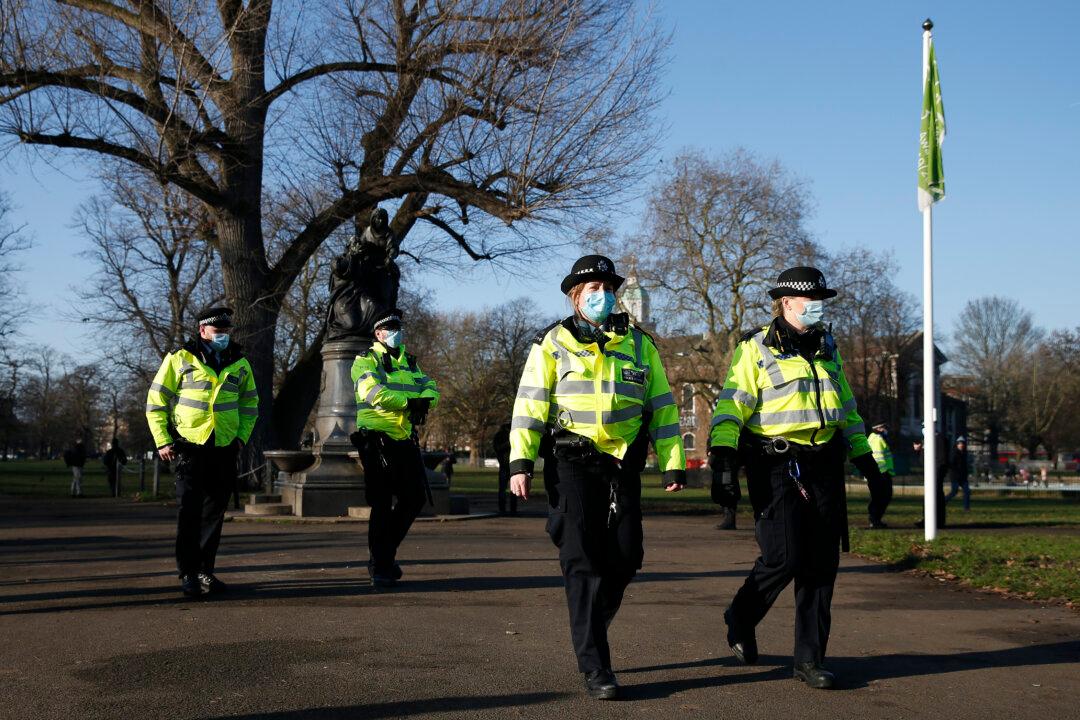A video showing a woman apparently arrested for sitting on a bench in violation of England’s lockdown rules over the weekend was planned and stage-managed, according to Dorset Police.
The footage, which has circulated widely online, shows police in Bournemouth leading away a woman in handcuffs as she says, “I was sitting on a bench.”





